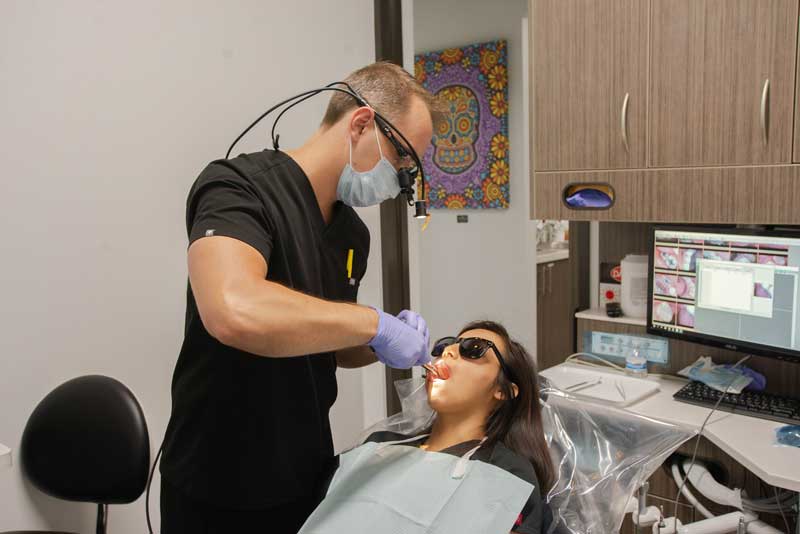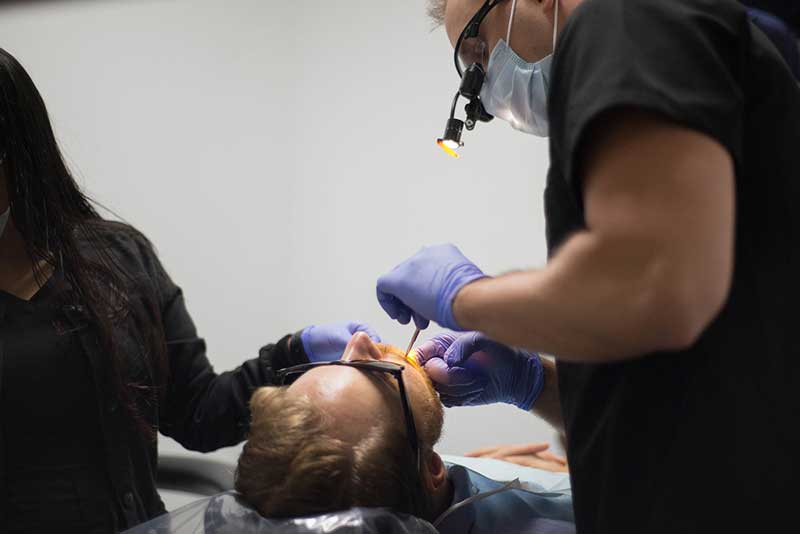What Is Pulp Necrosis?
منشور من طرف Jeffrey Linda
الجسم
Pulp necrosis is a condition in which your teeth pulp dies. Also, this is the last stage of chronic pulpitis, and it may lead to other severe problems, including tooth loss.
The innermost layer of teeth has blood vessels and nerve tissues. The pulp has a complex design of blood vessels and nerves that help your teeth healthy inside. The main part of the pulp is the root canal and the pulp chamber.
When you have a dental infection, the pulp becomes infected or dies. This can lead to severe dental issues if not treated properly. You should seek a dentist midtown to prevent further infection or save your teeth from being extracted.
What are the Symptoms of pulp necrosis?
There are various signs and symptoms of pulp necrosis when your tooth chamber or pulp dies off. This is because once the necrosis happens, the nerves stop sending alert signals of pain and discomfort because the pulp has died.

You may experience tooth sensitivity to cold and hot food or drinks in the early stages. Once pulp necrosis occurs, you can't feel cold or hold sensitivity. However, you might feel pressure in the affected area while eating or grinding your teeth.
You may suffer from necrotic if you have untreated decay, trauma, or large fillings. The necrotic pulp disease is irreversible. You must visit cosmetic dentistry Houston texas, for root canal treatment or tooth extraction.
Tests and diagnosis
Before testing for pulp necrosis, a midtown dentist will examine and diagnose your teeth and gum condition. Because sometimes, this condition isn't known to the patients. Your dentist performs a dental examination with the help of digital scanning and X-rays to know about the whole mouth condition and eliminate other possible situations that may be harboring pulp necrosis.
If dentists find or suspect pulp-related diseases, then they will use an electric pulp tester to know about pulp disease. This tooth delivers small shocks to your teeth; if you feel the shock, then your pulp is alive or otherwise not.
What is the Cause of pulp necrosis?
Pulp necrosis starts due to tooth cavities and decay. And a cavity begins due to plaque or tartar buildup, which leads to holes in your teeth' outermost layer, called teeth enamel. Therefore you should maintain dental health properly and contact the dental clinic Houston if you find any such issue with your teeth. However, if your teeth continue to decay, they expose the pulp to bacteria, resulting in pulp infection.

Complications associated with necrotic pulp
If your pulp gets infected, you need root canal treatment or tooth extraction to prevent further infection. If left untreated, complications may develop. However, the treatment itself lead to complication. With pulp necrosis and its treatment, you may be at risk of:
- Infection
- Fever
- Jaw swelling
- Pulpitis
- sinusitis
- periodontitis diseases
- bone loss
Conclusion
Therefore, you should maintain good dental practices such as brushing and flossing twice daily and visit cosmetic dentistry Houston for routine checkups at least two times a year.
Article Source : https://www.bloggingpalace.com/what-is-pulp-necrosis/











تعليقات